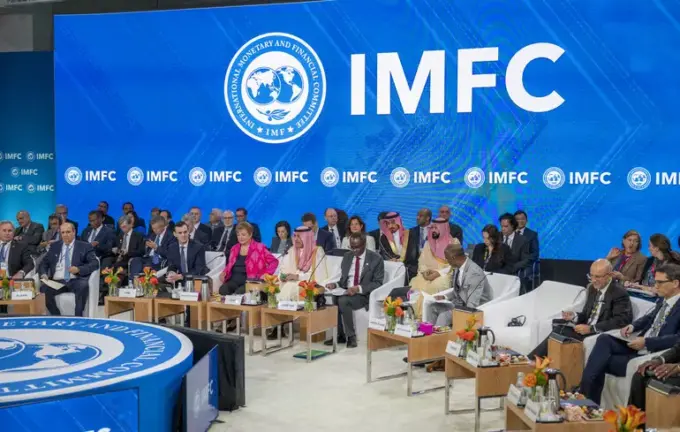Annual IMF Meetings: Key Challenges and Future Prospects for the Global Economy and Ukraine

The annual meetings of the International Monetary Fund (IMF) and the World Bank, held in Washington from October 16 to 20, have become a significant platform for discussing pressing global economic challenges facing the modern world.
In an era of profound transformation of the global economy, accompanied by radical changes in political and economic structures, countries face complex tasks of maintaining stability and growth.
A primary focus of the participants was on the necessity of preserving macroeconomic and financial stability amid ongoing reforms and shifts in the international order.
It is important to understand that current geopolitical challenges, including Russia’s aggression against Ukraine, conflicts in the Middle East, as well as new tariff and trade policies of Western nations, contribute to increased uncertainty and complicate long-term planning for many nations.
Special attention was directed toward Ukraine, which is seeking new financial support programs from the IMF.
Discussions covered the parameters and prospects for ongoing cooperation, especially considering the war and its challenges.
Participants emphasized the importance of reforms in public finance management, debt reduction, improving investment attractiveness, and enhancing transparency in economic processes.
Maintaining central bank independence and continuing structural reforms are equally crucial.
Global economic analysis indicates that worldwide growth remains sluggish due to high tariffs, the removal or reduction of trade barriers, and rising risks of financial instability.
The IMF forecasts a decline in inflation to approximately 4.2% in 2025 and 3.7% in 2026, though uncertainties remain high.
Particularly concerning is the situation in the US, where inflation forecasts are upward due to tariff policies.
Regarding Ukraine, key issues include agreeing on parameters and securing support for a new financial assistance program.
Given the ongoing conflict and associated risks, the IMF anticipates that active hostilities could persist until early 2026.
Consequently, Ukraine’s economic growth is expected to slow to around 2%, with inflation projected at 12.6%.
In light of external challenges, Ukraine must actively collaborate with international financial institutions and partner countries to mitigate risks and strengthen its economy.
Such efforts will advance the country’s European integration aspirations and help maintain economic independence despite war and sanctions.

